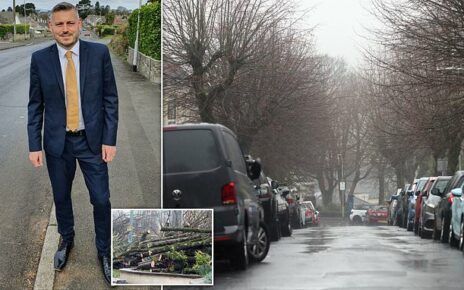In 1776, both free and enslaved Blacks joined together and formed the First Baptist Church in Williamsburg, VA. When a tornado damaged the original church in 1834, it was re-built and the second building lasted for more than a century, until it was turned into a parking lot for Colonial Williamsburg, a living museum, in 1956.
Last week, archeologists began excavating graves at the church site, the beginning of a new effort to learn about those buried and their lives, paying tribute to the African American contributions to society.
For nearly six decades, “the museum failed to tell the stories of colonial Black Americans – many of them enslaved – who made up more than half of the 2,000 people in Virginia’s 18th century capital. But in recent years it has made an effort to tell a more complete story, placing a growing emphasis on African-American history.”
Jack Gary, Colonial Williamsburg Foundation’s archeology director and his team are charged with the excavation of the 41 graves and said “It doesn’t hit you until you see a bone you recognize: That’s a piece of a person. You are touching another human.”
A private blessing was given before the excavations commenced. Churchgoer Connie Matthews Harshaw said, “It was important for us to have that ceremony – to bless the ancestors…Because we don’t know their names. Their names are known only to God.”
Many church members have been eagerly awaiting this project, hopeful for more knowledge about their possible ancestors. Some had long believed this was a burial site, given that they had long heard the stories passed down from one generation to the next. As Harshaw said, “When your grandmother tells you something, normally you can count on it.”
After the original structure of the church was discovered, Reginald F. Davis, Pastor of First Baptist said, it was “a rediscovery of the humanity of a people…this helps to erase the historical and social amnesia that has afflicted this country for so many years.”
The Institute for Historical Biology on the college of William & Mary’s campus, will be cleaning and analyzing the bones, while the University of Connecticut will be handling the DNA tests.
After a year, the bodies will be reinterred in their original graves, and the church is now finally becoming an acknowledged part of Colonial Williamsburg, with “re-enactors…talk[ing] about what it was like to be a Black Baptist in the days after the American Revolution, believing in the equality of all before God in a society that proclaimed, ‘All men are created equal’ and yet perpetuated slavery.”
Source: Read Full Article
